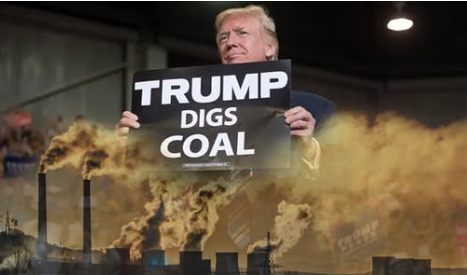PV Evolution Labs (PVEL), an independent test lab for the solar industry, has upgraded the company’s suite of extended reliability and performance tests, the Product Qualification Program (PQP).
PVEL established the PQP in 2012 to provide empirical data for PV module benchmarking and project-level energy yield and financial models, and to help recognize top-performing PV modules. PQP testing also helps inform the company’s annual PV Module Reliability Scorecard, which provides actionable insights for PV module procurement based on data from PVEL’s testing.
“The module buying landscape has changed dramatically in recent years with advancements in module technology and new players entering the market, and in response, PVEL has focused our globally-acclaimed test program on addressing these changes,” said PVEL’s Tristan Erion-Lorico.
“The improvements we’ve made in this PQP update incorporate critical feedback from our downstream partners, research institutes, module and component manufacturers, and our own test results, keeping the PVEL PQP at the forefront of the growing demand for PV module procurement due diligence,” he adds.
Notable updates to the PQP include the following:
- a new test to address concerns around Ultraviolet Induced Degradation (UVID);
- refocusing the Hail Stress Sequence (HSS) on identifying the threshold of glass breakage;
- modifying the Mechanical Stress Sequence (MSS) to target module mechanical durability concerns; and
- streamlining processes for Light Induced Degradation (LID), Damp Heat (DH), Light and Elevated Temperature Induced Degradation (LETID), and Backsheet Durability Sequence (BDS) testing.
Participation in PVEL’s PQP is voluntary for manufacturers, and only top-performing module model types are named in the annual PVEL Scorecard. To date, PVEL has tested over 600 BOMs from more than 70 manufacturers for the PV Module PQP.
The post PVEL Enhances Product Qualification Program for PV Modules appeared first on Solar Industry.
Renewable Energy
ExxonMobil Lowering Carbon Emissions? Sure.
 Exxon: We’re investing in innovative technologies to reduce carbon emissions while supporting the needs of heavy industry.
Exxon: We’re investing in innovative technologies to reduce carbon emissions while supporting the needs of heavy industry.
As a marketing consultant, here’s my advice to Exxon:
Keep your money in your pockets. There is no conceivable investment in public relations that will convince us, as stupid as we may be as a nation, that you care a damn about the health of our planet’s environment, or about the wellbeing of life on Earth.
Renewable Energy
Gallup Disappears into Ignominy
 Until this announcement, I think anyone would have said that Gallup, Inc., founded in 1935, had a solid reputation for honesty and integrity.
Until this announcement, I think anyone would have said that Gallup, Inc., founded in 1935, had a solid reputation for honesty and integrity.
Yesterday, all that vanished in the blink of an eye.
Imagine you’re one of about 2000 employees located in one of about 35 offices around the world, including New York City, London, Berlin, Sydney, Singapore, and Abu Dhabi. How sickened would you be?
Renewable Energy
Trump Digs Coal
From “The Other 98”
 Trump now wants Americans to believe that greenhouse gases don’t endanger human life, a claim that flies in the face of virtually every scientist on Earth. His administration just erased the EPA’s longstanding “endangerment finding,” the scientific and legal cornerstone that said carbon pollution warms the planet and harms human health. Without it, the EPA can no longer regulate greenhouse gases from factories, cars, or power plants, effectively stripping the federal government of its ability to combat climate change.
Trump now wants Americans to believe that greenhouse gases don’t endanger human life, a claim that flies in the face of virtually every scientist on Earth. His administration just erased the EPA’s longstanding “endangerment finding,” the scientific and legal cornerstone that said carbon pollution warms the planet and harms human health. Without it, the EPA can no longer regulate greenhouse gases from factories, cars, or power plants, effectively stripping the federal government of its ability to combat climate change.
Trump is nothing if not predictable and consistent in his policies that fly into the teeth of science and cause grievous harm to our health.
Since science recognize vacci nations as safe and effective, why not appoint an anti-vaxxer to head up the Department of Health and Human Services?
Coal is by far the most toxic source of energy, so guess what Trump supports.
-
Climate Change6 months ago
Guest post: Why China is still building new coal – and when it might stop
-
Greenhouse Gases6 months ago
Guest post: Why China is still building new coal – and when it might stop
-
Climate Change2 years ago
Bill Discounting Climate Change in Florida’s Energy Policy Awaits DeSantis’ Approval
-

 Greenhouse Gases2 years ago
Greenhouse Gases2 years ago嘉宾来稿:满足中国增长的用电需求 光伏加储能“比新建煤电更实惠”
-
Climate Change2 years ago
Spanish-language misinformation on renewable energy spreads online, report shows
-

 Climate Change2 years ago
Climate Change2 years ago嘉宾来稿:满足中国增长的用电需求 光伏加储能“比新建煤电更实惠”
-
Climate Change Videos2 years ago
The toxic gas flares fuelling Nigeria’s climate change – BBC News
-

 Carbon Footprint2 years ago
Carbon Footprint2 years agoUS SEC’s Climate Disclosure Rules Spur Renewed Interest in Carbon Credits



